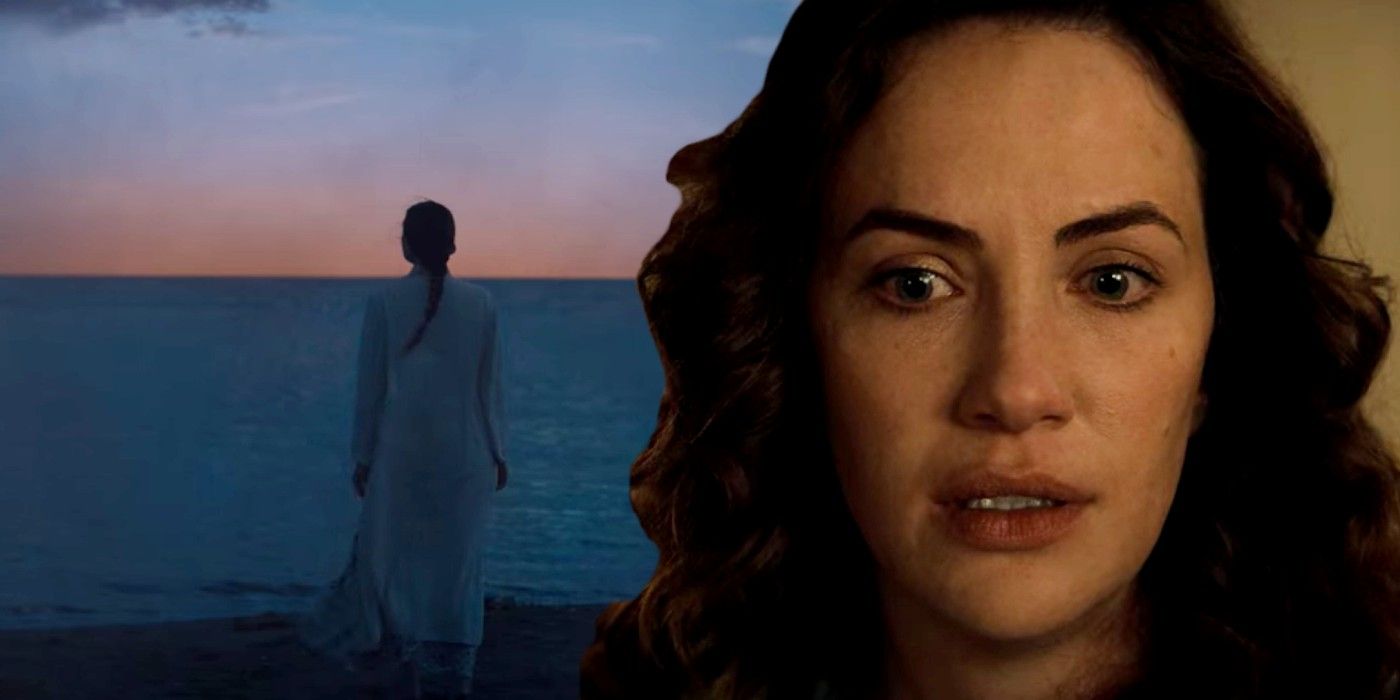
Warning: This post contains spoilers for Midnight Mass.
Following on from The Haunting Of Hill House and Bly Manor, Midnight Mass is a typically complex, intense horror from the mind of Mike Flanagan. At times, it makes a difficult watch, but it is rich in meaning and symbolism far beyond its apparent agenda to leave the audience ill-at-ease. While Midnight Mass is not linked to Hill House or Bly Manor, like those shows, it's fair to say it challenges the viewer with lingering questions at an existential scale about belief, mortality, and the finality of death.
Protected rather ingeniously by a vague marketing campaign that preserved the early season twist, Midnight Mass is a reminder that vampire TV shows don't need to be sexed-up soap operas. Taking a liberal approach to hundreds of years of lore, Flanagan's third Netflix horror show is seemingly far more interested in the mythology of religion than in traditional imagery of wooden stakes, garlic, severe-collared cloaks, and crucifixes. It is both nuanced and faithful in its knowledge of tradition but also impressively new wave in its reinvention of those old runes. And that it is nothing like the lingering ghosts of Bly Manor or Hill House and is still very much an expression of Flanagan as a creator is very impressive.
At times, Midnight Mass is heavy going, but it is rewarding in its human propaganda in the end, even when the darkness threatens to envelop it completely. It is a triumph of free will, which poses a significant number of very compelling questions that are sure to expand its legacy. Here's what the ending of Midnight Mass really means.
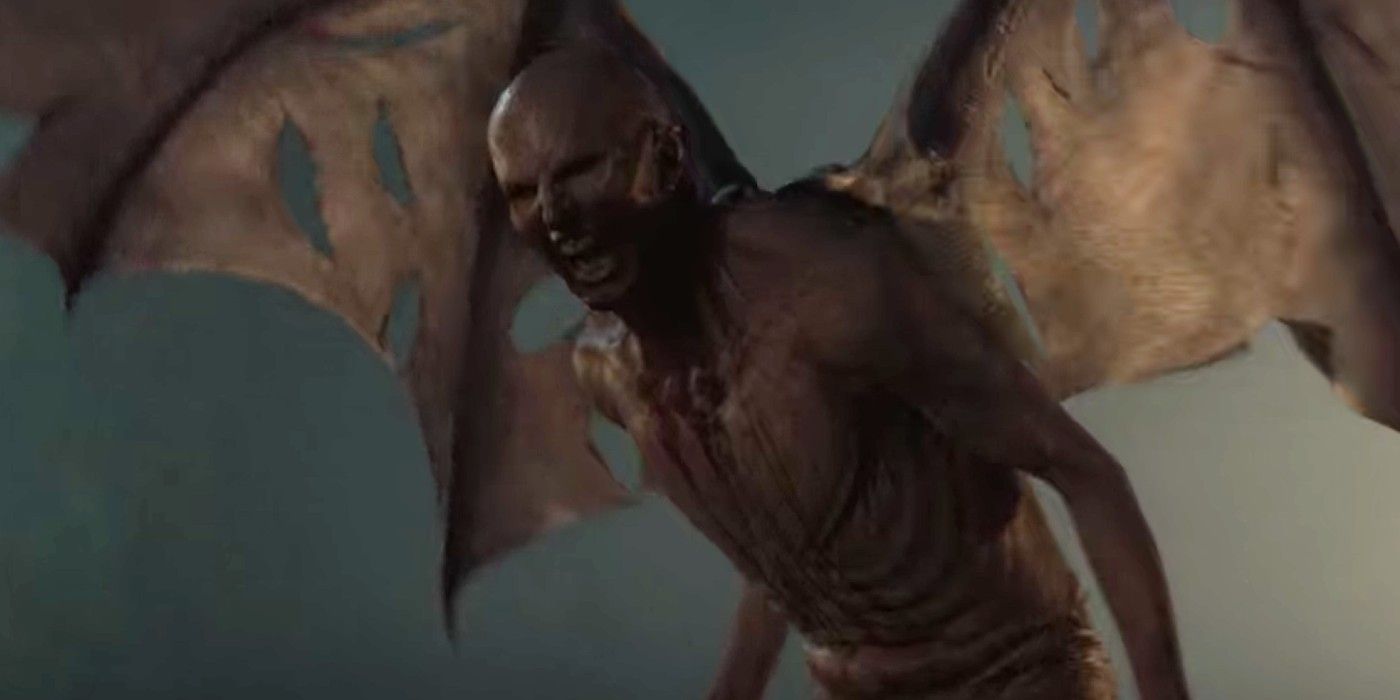
Throughout Midnight Mass, Father Pruitt (Hamish Linklater) refers to the creature as an angel, quoting appropriate scripture to explain its existence as a portent of the Lord. He seems completely certain of its providence, despite the fact that vampire lore is so well established. Then again, there's very little suggestion that this world even recognizes the existence of vampires: nobody suggests them as a reason for the "infections" and there's no trope-aware character who knows how to dispatch them. Even the revelation of the impact of sunlight doesn't seem to spark any familiarity. The reason for the belief in the creature as an angel is both testament to the power of and issue with blind faith. The vampire is found inside what appears to be a decrepit temple of some sort, in the Holy Lands, and restores life to Pruitt, so it makes sense that he and his followers would recognize it as an angel.
By their very mythology, vampires exist almost as a reverse Christ allegory: they are reborn after death, after all, but even more pertinently, Jesus supposedly bled to give his followers life (again, the reason Pruitt is enchanted by the creature's religious symbolism), while vampires take blood to enhance their own vitality. Blood sacrifices and drinking blood are not uncommon in ancient religions, and the Bible makes mention of the whore of Babylon being drunk with the blood of the saints in Revelation 17:6. So there's an easy explanation for that faith in the monster, even if it suggests this universe never saw the Church introduce religious solutions to the vampire problem. In mythology, holy water and crucifixes drives them back, while vampires cannot stand on hallowed ground: in Midnight Mass, this is curiously absent from the mythology, but it could merely be an endorsement of the idea of the Church introducing those solutions as a form of propaganda.
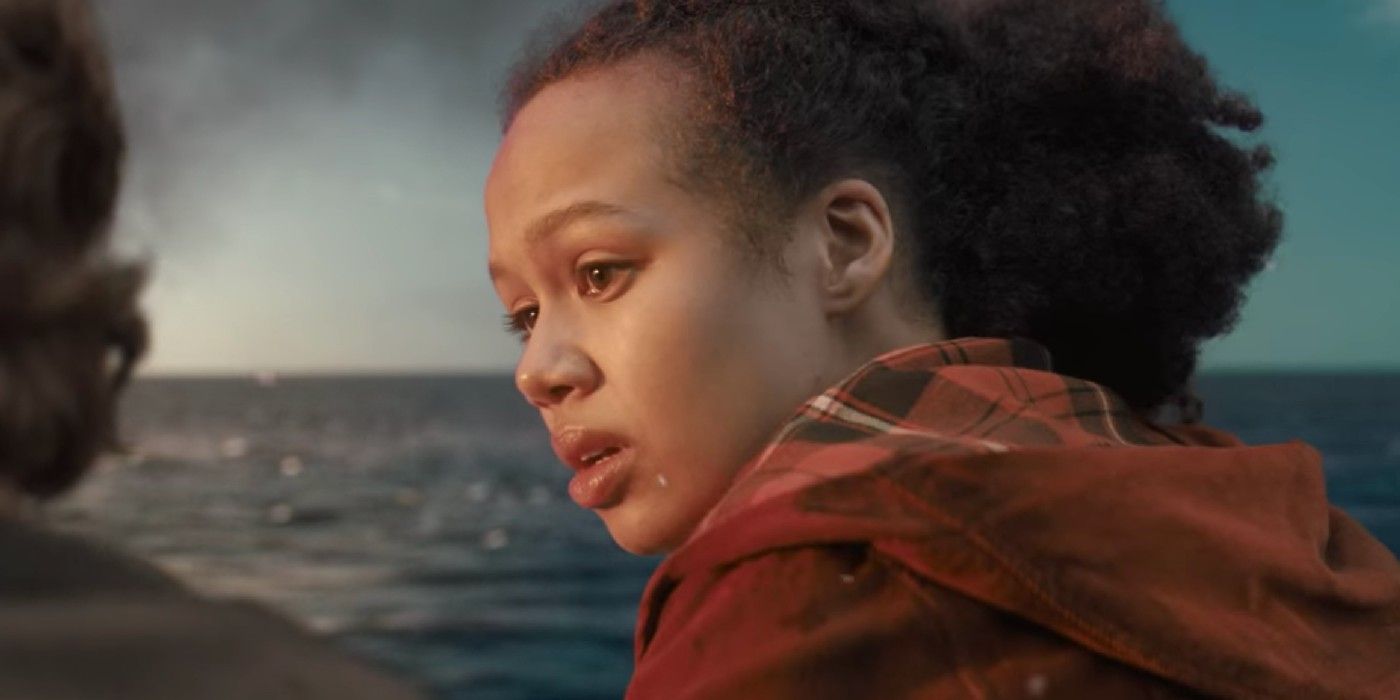
While Midnight Mass' ending appears to be ambiguous in terms of the vampire's fate, because its death is not seen on screen, there is a major hint that the creature dies as Erin intends out over the bay. Leeza and Warren discuss the creature's slashed wings and the 30-mile journey it has to make to outrun the dawn, which would have been unlikely even without the injuries. The vampire had a matter of a few minutes in real time to make its escape, and the distance would require a phenomenal speed to make it to safety. As if to confirm the unlikeliness of that, Leeza regaining the feeling in her legs suggests that the vampire is indeed killed by the rising sun. Because the townspeople are gifted their restored youth and health by the creature's blood - through Holy Communion - it makes sense that her losing feeling in her legs follows the creatures death. While Midnight Mass doesn't follow many vampire tropes explicitly, it seems that killing the "original" vampire to break the magic does translate here.
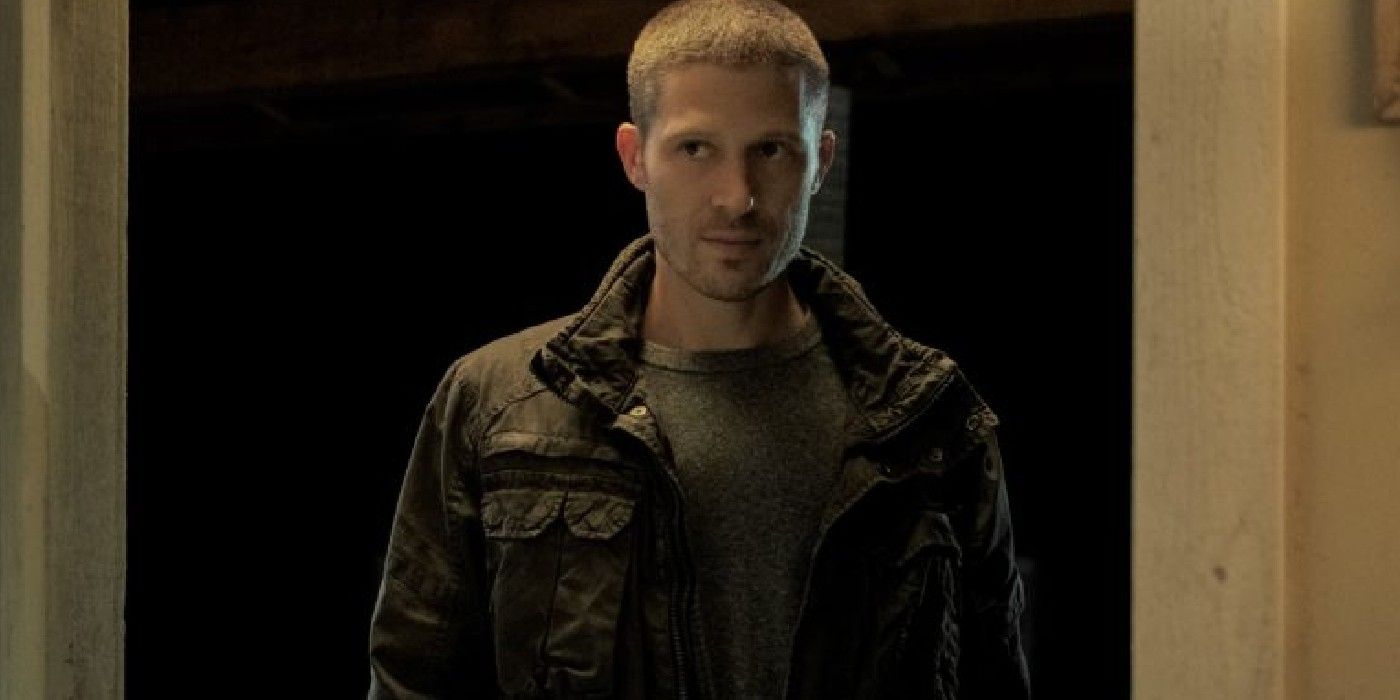
Prior to the reveal of Pruitt's identity and the monster, Midnight Mass leans heavily into Riley's addiction as the main thrust of the story. There are parallels between his addiction - or more pertinently his journey to healing - with the state of the Crockpot itself. Even after the monster is revealed, Riley's addiction proves to be a mirror for Pruitt's thirst, and there is some suggestion as the pair discuss their similarities that choice is still important. It's not only the vampiric element of the story that seems to parallel addiction, so too does the commitment of the townsfolk to religion, and particularly that of Bev Keane (Samantha Sloyan), who is incredibly blinkered in her devoutness. She is, in fact, dangerously obsessive and willing to allow evil to endure in what she sees as her commitment to Godliness and there's certainly a question over whether she has much choice. There is certainly compulsion, and while the behavior of those taken in by Pruitt's preaching and the promise of better is reprehensible, the link to addiction removes some element of blame. That goes doubly when those who kill out of bloodlust at the end are shown to be appalled and devastated by their actions.
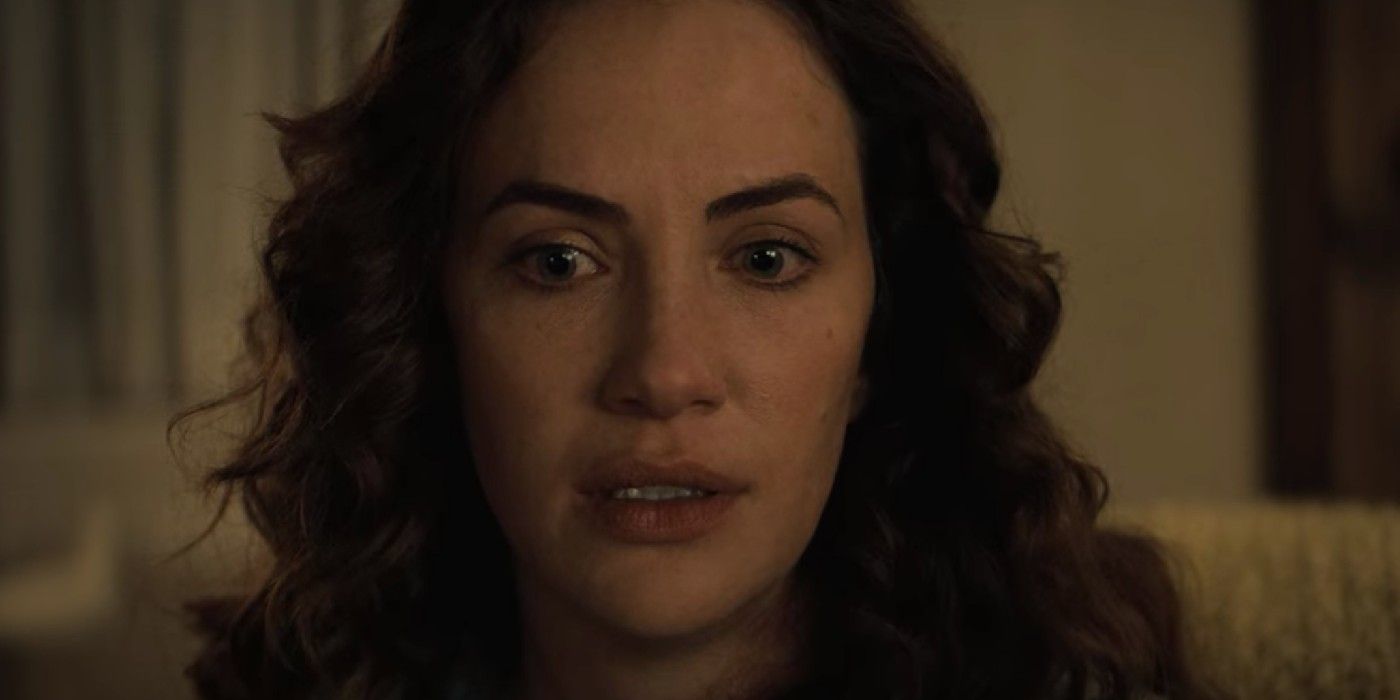
The first time Erin is asked by Riley what she thinks happens after death, her response is one of sentimental faith and hope, as she expresses her desire to see her lost child again. Her response feels like a rebuttal to the cynical scientific response Riley offers and is seemingly the reason she sacrifices herself to allow the others to escape. So firm is her faith in being reunited with her lost loved ones that she willingly gives up her life to the monster after it takes her. In contrast, as she lies dying from her neck wounds in the finale her response changes to something far more existential. After a long monolog, her response amounts to "We are the cosmos dreaming of itself", as she confirms her new-found certainty that neither life nor death really matters: that we are all one, linked by energy and matter and it is in that shared existence that God really exists. It's a strange deviation from Erin's hopeful answer, given that it seems to crush her dream of meeting her child again, and it's curiously unfeeling, despite the philosophy, but it's an intriguing meditation on existence. Mike Flanagan appears to be dispelling organized religion as a condition of selfishness or at least a fallacy of the human condition because of how wrapped up we are in the self.
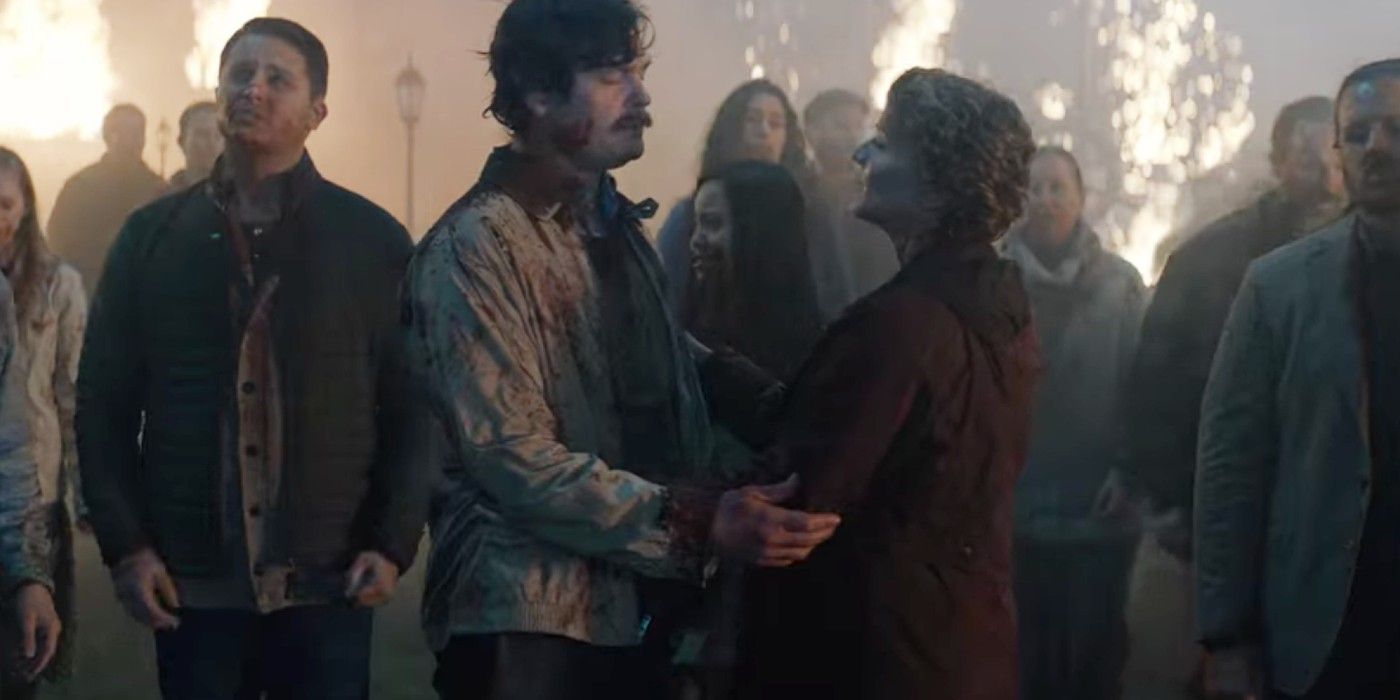
At the end of the finale, as the sun comes up and the infected townspeople accept their deaths, Riley's parents begin to sing a hymn - "Nearer, My God, To Thee" - which the entire crowd sing in unison as they are killed. The hymn should be familiar to fans of Titanic, as it is notorious as the song played by the band as the infamous ship went down. Thanks to that and other alleged morbid uses, the song has a rather grim association, but it is actually one of hope and life beyond death. More broadly, the hymn is commonly used as a funeral song, as it retells Jacob's story from Genesis 28:11–12, which relates him finding a place to die and dreaming of a great ladder to heaven (also, of course, the source of the title of Jacob's Ladder). The hymn is clearly used as a mark of hope after darkness: the Crockpot's residents may have been largely overcome by sin and strayed from the path of righteousness, but they are looking forward to their redemption.
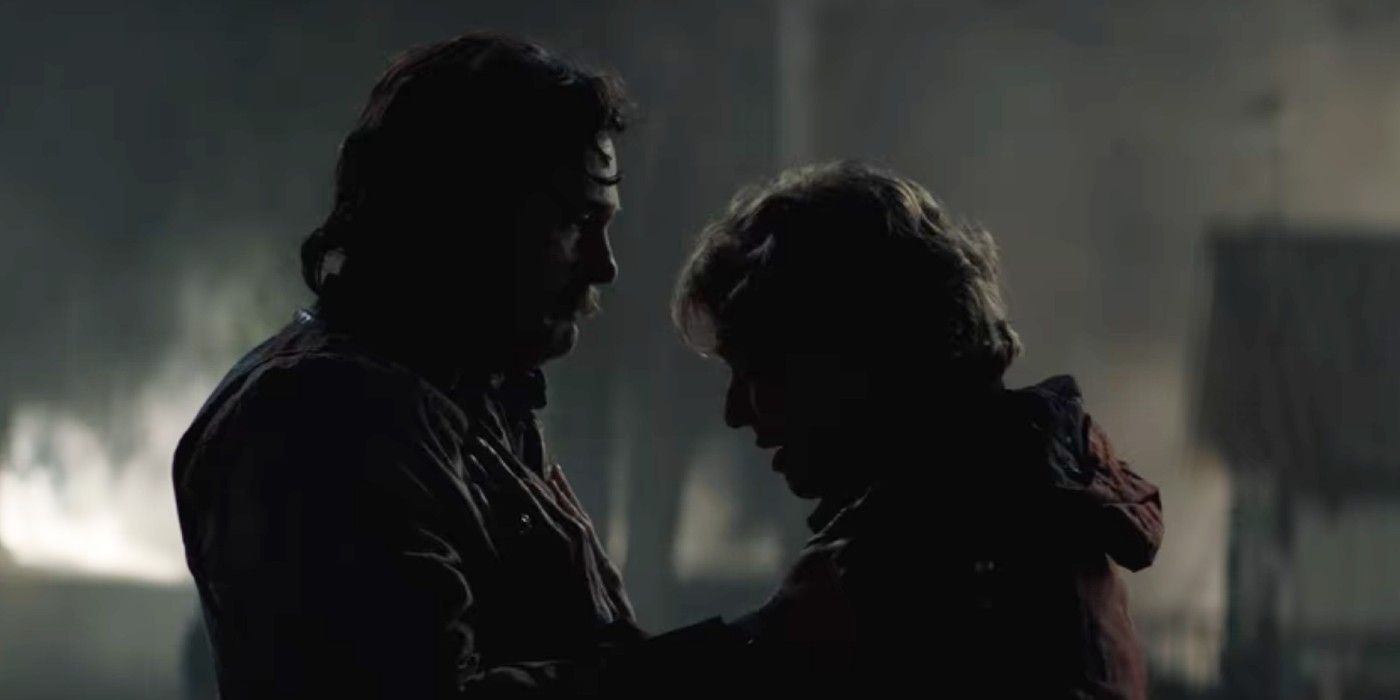
Despite the bloodlust that takes over the townspeople in the wake of the titular Mass, some of those who are turned refuse to attack their fellow residents and drink their blood. It's an intriguing development, given the perceived lack of control of some of those who are reborn as "vampires", but it speaks to Midnight Mass' broader ideas of addiction and restraint. It's also in contract to how other vampire stories like Twilight present animalistic vampire instincts. Notably, the elder Flynns and Ali choose not to drink blood and appear not to be overcome with an irresistible urge to do so, which largely comes down to the fact that they have greater restraint. The Flynns had experienced hardship and emotional trauma because of Riley's alcoholism and the cost of his addiction and were able to remove themselves from the compulsion, while Ali was raised to practice restraint by his Muslim parents. This is something new to the vampire lore of Midnight Mass, as the suggestion seems to be that will can triumph over instinct, even in the face of animalistic impulse, and it feels like Flanagan is making a pointed statement on restraint and personal freedoms that breaks well beyond the boundaries of the show.
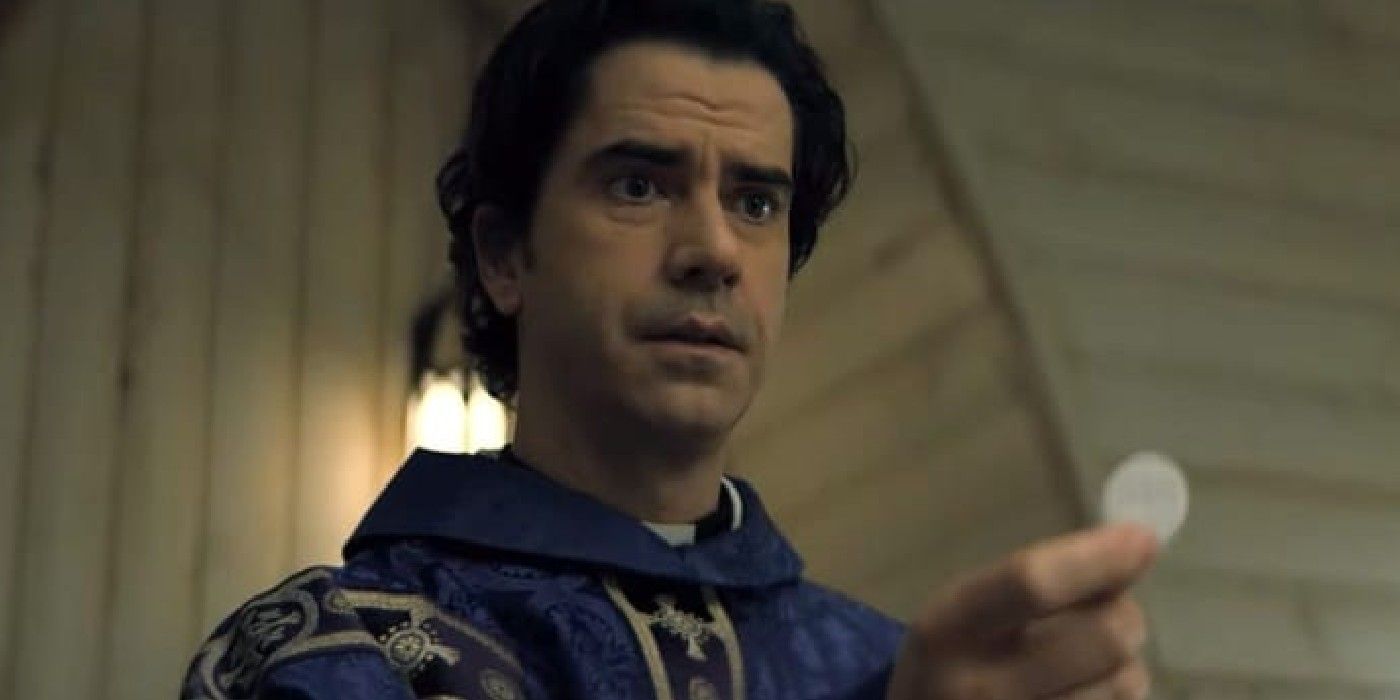
For the most part, Midnight Mass is accurate in its portrayal of Catholicism, certainly in the ceremonies shown and in the scripture quoted. The interpretation of those Bible passages are more creative than practicing Catholics will be used to however, and it's likely there will be some controversy over the use of religious imagery as the show picks up more attention. Because the Bible is the "word of God" and is to be interpreted as God's nature and intent, the suggestion that scripture can be fluidly read to cover all behavior is something of a red flag. But then, that is precisely the point. While it's not an overtly firebrand takedown of organized religion, Midnight Mass clearly has something to say about it. The Church may form the heart of the community and offer a chance of redemption, it's telling that it is an institution of corruption, first through Bev's suggested embezzlement of settlement money and her role in making the Crockpot a ghost town, but also in Pruitt's "new ways". It's only through twisting the Church out of what it is intended to be - a source of comfort to the likes of Leeza, or an expression of devoutness and restraint, as it is to the Flynns - that it becomes popular.
Mike Flanagan is not making a critique of people of faith, and indeed Erin's speech about how death doesn't matter and energy is all linked in a cosmic equivalence of God is still rooted in spiritualism, but the concept of organized faith seems anathema. The Church, in Midnight Mass, is what controls Pruitt and means he cannot have a relationship with his lover and their secret daughter; it is also a sort of conduit to Bev Read's innate evil and the pinnacle of her plan to morally and religiously cleanse the community through denying sanctuary. It feels like Flanagan's concept of the Church in this universe is very much in line with Bev's ideal: an instrument of control and suppression, able to do whatever the institution sees fit to further its own agenda.
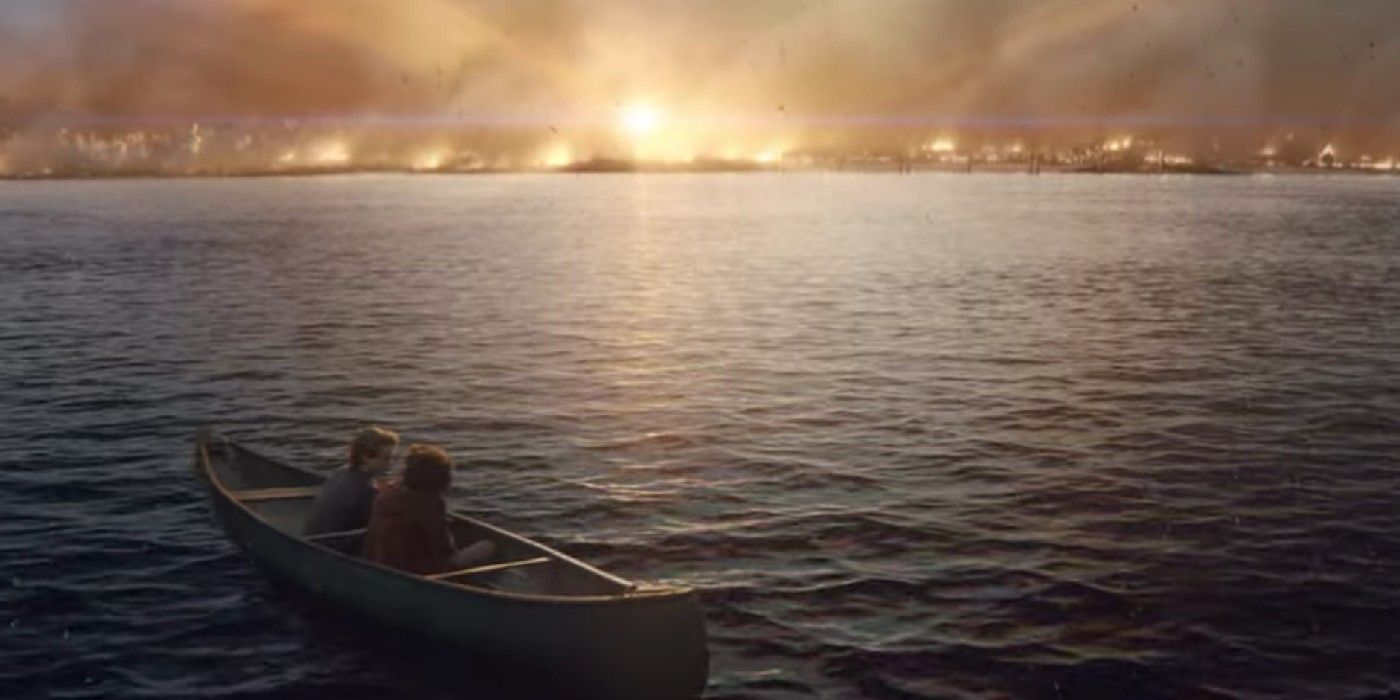
Fittingly, given the lesser focus on jump-scares and blatant horror elements in comparison to Hill House and Bly Manor, Midnight Mass is far more than just a creepy horror. It deals with humanity as almost a defiant construct, pertinently set in a community on the very edge of extinction, living on what amounts to fumes - both financially and spiritually. They are bereft of hope and take to the opportunity for redemption no matter what the cost, offering a commentary perhaps on what happens when the world abandons its own people. It is firmly pro-human, especially in its final moments, when the overriding feeling is that even (most of) the worst sins committed in the Crockpot were well-meaning, and the darkness was rejected wholesale through the triumph of freewill. Against oppressive controlling factors like poverty, addiction, a physical institute of suppression, and even grief, the people choose their own path and the sun rises.
Through Riley's story, there is also a meditation on forgiveness and acceptance: he atones for his crime against his young victim by making sure he makes no victims of anyone else, but by that point, he already feels redeemed by his willingness to do the work. Fundamentally, Midnight Mass is Mike Flanagan's complex, emotionally, and philosophically loaded and its comments on faith, addiction, forgiveness, death, and redemption paint a rich tapestry far beyond any reductive classification of it as a twisty vampire story.
from ScreenRant - Feed https://ift.tt/3zFjzTe

0 Comments